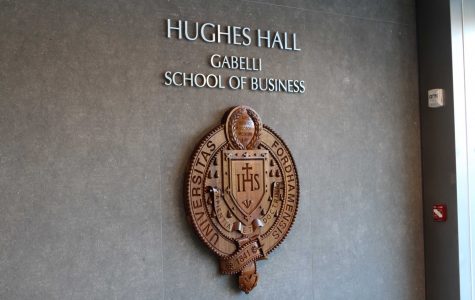I am writing in response to your recent article entitled “Study Abroad South Africa Suspended,” published on January 25, 2017. For the past 18 years I have traveled regularly to Africa to support Fordham University’s partnership with Catholic Relief Services.
In addition, I have supervised Fordham’s IPED Emerging Markets Program in South Africa for nearly a decade.
I would have preferred not to write this letter but over the past few weeks it has become clear to me, for both professional and personal reasons, that I need to publicly distance myself from two implications some people may have drawn from the article.
The article first implies that the security situation in South Africa justified a suspension of Fordham’s Ubuntu study abroad program. Second, the article implies, which I do not believe was intended, that the quality of the academic experience was wanting in the program.
Your article has been widely read on your website in South Africa, not only among our many friends at the University of Pretoria, but also among some officials at the South African Ministry of Foreign Affairs.
Some of the views expressed in your article have embarrassed a number of our friends in South Africa as well as in the United States.
The article has also damaged Fordham’s reputation in that part of the world.
Regarding the security situation as a justification to suspend the program, I concur with our officials at the United States Embassy in Pretoria who saw no need to issue a travel warning.
I also concur with the actions of our colleagues at other US universities to continue their study abroad programs in South Africa.
The continuing programs in South Africa that I am directly aware of are with Cornell University, the University of Delaware and with the University of San Francisco.
I know of no US programs besides Fordham that were cancelled at this time.
Regarding the quality of the academic program at the University of Pretoria, I want to commend those at the University of Pretoria and at the Jesuit Institute in Johannesburg who, in response to the suggestions of our previous dean, Dr. Michael Latham, put together what I consider to be an excellent program on “Poverty and Community Development.” Just recently I had the opportunity to review this curriculum for the first time.
I found it quite impressive. Faculty from the humanities, social sciences, business and law all worked together to design and deliver what I consider to be an exciting program.
It is integrated with real life experiences where our students work side by side with South Africans in several townships.
Together they work on projects to alleviate poverty and promote community development in a new post-apartheid South Africa. Talk about being part of history! We at Fordham only wish that we could achieve such a level of interdisciplinary cooperation to address significant contemporary issues in our country.
In reviewing the program, I also learned something more about my own son who participated in Fordham’s South African program a few years ago.
I would wonder what drove him so hard to go to Cornell’s Law School. And now, I have been wondering why this past summer and autumn he turned down several lucrative job offers in corporate law while waiting to pursue far less lucrative positions later this year in public interest law.
I suspect that it may be related to what he saw and experienced in the townships of South Africa and what he studied and reflected on at the University of Pretoria.
-Dr. Henry Schwalbenberg, Director of Fordham University’s Graduate Program in International Political Economy and Development





